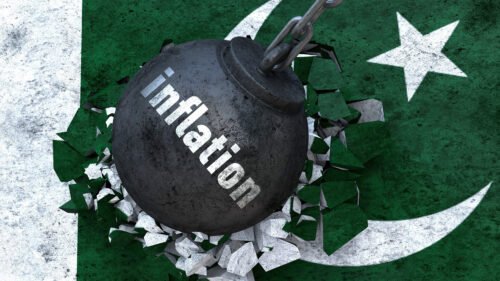International workers send large amounts of money, or remittances, to their families or others in their home countries. In places like Pakistan, they’re a major source of income for families and a key part of the national balance of payments. Remittances can improve living standards by funding housing, healthcare, and education, which contribute to economic development.
While they provide crucial income for families and boost the national balance of payments, remittances can be a double-edged sword. They can lead to currency overvaluation, making a country’s exports less competitive on the global market. They can reduce labor participation in the domestic sector, causing workers to opt for more lucrative jobs abroad.
Pakistan relies on remittances to manage external debt and finance deficits. This dependency makes the country vulnerable to external economic shocks. If the flow of remittances were to decrease due to a global economic downturn or changes in immigration policies in host countries, Pakistan could face severe financial challenges.
Remittances are also associated with higher consumption and imports. This trend could lead to a situation where the economy relies more heavily on remittances to maintain consumption levels, potentially limiting investment in productive sectors that drive long-term growth and job creation.
Learning from Israel’s example
Nasir Khilji, a retired senior US Treasury economist, emphasizes the importance of managing these inflows effectively. Nations that receive large amounts of remittances must avoid relying on cash inflows by undertaking structural reforms and investments to diversify the economy and increase labor productivity.
In recent decades, Israel has had similar experiences with remittances. The country directed remittance funds toward infrastructure and technology development. This skillful management helped Israel avoid the trap of dependence. It allowed the Israeli economy to grow, leading to positive economic outcomes.
Countries like Pakistan could follow suit by creating incentives for investment in productive sectors and developing financial products targeted at expatriates. Moreover, they need to implement structural reforms to ensure that the economy does not become overly dependent on remittances. This includes diversifying the economy, improving the business environment, and investing in human capital to increase labor productivity and participation.
As developing economies progress, effectively harnessing these financial resources can be a powerful tool to drive long-term growth and maximize the benefits of the incoming cash while mitigating its potential downsides.
[Peter Choi edited this podcast and wrote the first draft of this piece.]
The views expressed in this article/podcast are the author’s own and do not necessarily reflect Fair Observer’s editorial policy.


















Comment